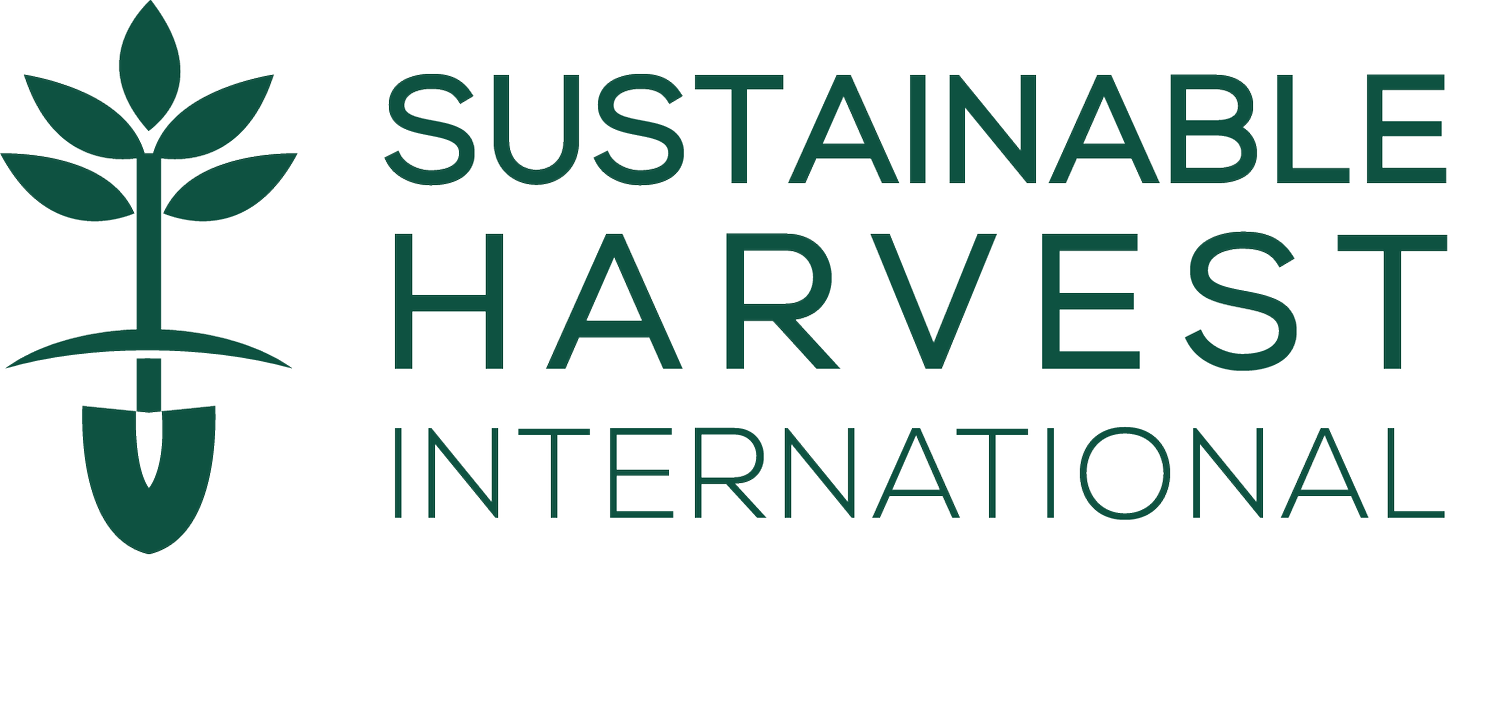Forests across Honduras are being destroyed by the destructive southern pine beetle, and climate change makes trees more susceptible to their damage. The land left behind after the infested trees are cleared away often becomes cattle pasture or industrial farms. It’s no bueno—we know!
Recently, Sustainable Harvest International mobilized 550 people from seven communities to plant 1,600 trees in an area devastated by the southern pine beetle. Thanks to these efforts, the area will remain a treasured forest.
Students in La Laguna, Honduras planted 800 trees. - photo by Obed Gomez
WHAT'S SO BAD ABOUT A LITTLE BEETLE?
The Southern Pine Beetle (Dendroctonus frontalis) - photo by Erich G. Vallery, USDA Forest Service - SRS-4552, Bugwood.org
In theory, the southern pine beetle is not a bad critter—like any species, it has a role to play in the ecosystem.
Here’s the thing: female southern pine beetles lay their eggs in tree bark. After finding a host tree, they bore into the bark, laying their eggs in S-shaped galleries. While their egg laying may look like art, it also disrupts the flow of nutrients to the trees. When one southern pine beetle enters a tree, many others soon follow. Before you know it, the tree turns from green to orange to yellow, then turns brown and dies.
Aerial view of a bark beetle infestation in a pine forest in the Olancho Forest Region, Honduras. - photo by Ronald F. Billings, Texas A&M Forest Service, Bugwood.org
What makes a good host tree? Well, one that’s a little stressed out due to prolonged drought and rising temperatures. You guessed it—a tree that has succumbed to the vexing effects of climate change. A healthy tree may be able to fight off an infestation through the resin it produces as a defense mechanism, but a tree whose system has been compromised? Not so much.
Southern pine beetle infestation being treated with pile-and-burn as means for control in Honduras. Infested trees are piled in preparation for burning to eliminate beetle broods. - photo by Ronald F. Billings, Texas A&M Forest Service, Bugwood.org
Though southern pine beetles have always been part of the Honduran forest ecosystem, reports show that they’re multiplying rapidly—and so is their devastation. Over one million acres of pine forest have been destroyed already—about one-quarter of Honduras’ forest cover!
It’s tempting to allow the devastated land to be converted into pasture for cattle or industrial farming. After all, the land has already been cleared of the sick trees. But the farmers we work with in Honduras know that losing forests is not simply a matter of losing trees. Cutting down the infested trees can further spread of the dangerous beetle, but reforestation efforts are just as crucial.
A SEAT AT THE WATER TABLE
Forests provide wildlife habitat, stabilize the climate, sequester carbon, protect biodiversity, natural beauty, and water! Without forests, we lose precious resources that both people and wildlife depend on.
Many Hondurans are concerned about the bare hills they now see around them. Without trees, rain bounces off the surface and rushes downhill causing erosion and loss of precious topsoil—even deadly landslides. Where will they collect firewood if there are no trees? What will they build their houses with?
Most importantly to the communities around the area around Cerro Azul Meambar National Park, Honduras, trees protect the water table. When it rains, trees help water infiltrate the soil to replenish the water table, feeding the springs from which communities get their water supply.
Students and teachers in El Pito, Honduras planted 200 trees! - photo by Jonatan Reyes
THE WAY TO RECOVERY
Fostering a healthy forest ecosystem helps to stabilize the climate (remember: that unpredictable climate brought about the influx of southern pine beetles in the first place!). While the Honduran government and many communities are cutting down infected trees in an effort to quell the destruction, Sustainable Harvest International is leading the call for reforestation. Many community members are eager to plant trees and help the area recover, but they don’t have access to tree seedlings.
120 students and 25 teachers in La Laguna, Honduras took part in the reforestation effort. - photo by Obed Gomez
This Arbor Day (that was May 30, if you missed it!), we organized a massive reforestation effort in seven communities around Cerro Azul Meambar National Park. 550 people (mostly students) took part! Thanks to trees donated by the Forestry Conservation Institute of Honduras (ICF) and donors like you, 1,608 trees found new homes on land previously devastated by southern pine beetles. Some of the trees even came from nurseries run by students, in partnership with Sustainable Harvest International.
These students, teachers, and parents reforested more than five acres and participants learned firsthand about the importance of maintaining and preserving a healthy forest. Instructors from both Sustainable Harvest International and ICF were on hand to give guidance to those planting.
Students in Monte de Dios learn how to successfully transplant seedlings from the staff of ICF and Sustainable Harvest International. - photo by Rolando Sabillon
Mitigating the effects of climate change is no easy task. It requires each of us to do our part. We’re grateful to the students, teachers, parents, staff, and donors who made this tree planting happen. It doesn’t just take a village; it takes each and every one of us.
Did you know your $15 donation can plant 15 trees in Honduras, Panama, or Belize? It's an easy way to combat the effects of climate change.
Rosa is taking a stand against the southern pine beetle, too! Read her story.









